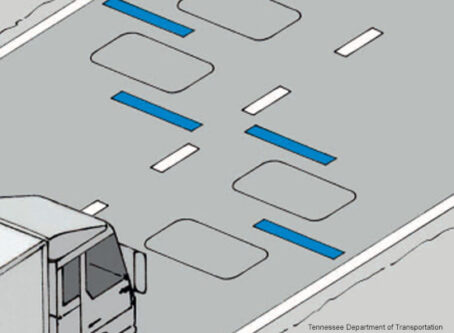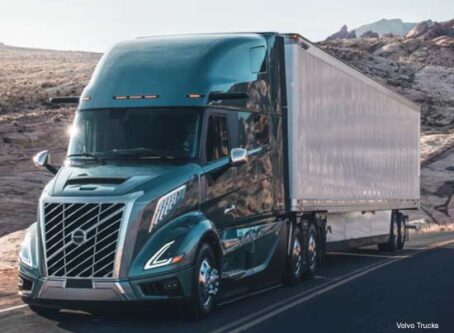British Columbia’s speed limiter mandate rolls out Friday
A mandate in British Columbia requiring the majority of heavy trucks operating in the province to be equipped with a speed limiter is going into effect this week.
Beginning Friday, April 5, all commercial vehicles operating in B.C. manufactured after 1994, with a gross vehicle rating of more than 11,793 kg (26,000 pounds), will be required to have their speed limiting device activated, set and accurately programmed to a maximum rate of speed of 105 km/h (65 mph). Emergency vehicles and motorhomes are exempt from the new requirement.
In April 2023, the provincial government made modifications to B.C’s Motor Vehicle Act mandating the use of speed-governing devices on heavy trucks. At the time, the ministry said the use of speed limiters would help with “decreasing (greenhouse gas) emissions, reducing speed-related crashes and making it safer for all road users.”
After Friday’s law takes effect, the following violations could result in a fine of $368 (about $272 USD):
- No speed limiter in heavy commercial vehicle
- Speed limiter not activated
- Speed limiter not set to prescribed maximum rate of speed
- Speed limiter not in good working order
- Inaccurately programmed electronic control module
- Tampering technology in heavy commercial vehicle
- Tampering technology interacting with speed limiter
B.C. will join Ontario and Quebec as the only other Canadian provinces to mandate the use of governors on trucks. Ontario has required the use of the devices since June 2008, capping speeds at 105 km/h. In 2009, Quebec followed their lead, limiting commercial vehicles to the same speed.
According to the British Columbia Ministry of Transportation and Infrastructure, Ontario saw a 73% reduction in speed-related crashes involving commercial vehicles after the province’s mandate took effect.
Speed limits in British Columbia along major highways and expressways range between 110-120 km/h (70-75 mph).
“As heavy commercial vehicles regularly travel cross-country, this requirement will provide consistency for carriers and truckers who travel between B.C., Ontario and Quebec, where speed limiter requirements also exist,” the ministry said.
Later this year, the province will roll out another mandate intended to improve roadway safety.
Beginning June 1, most commercial vehicles equipped with dump boxes will be required to utilize in-cab warning devices. Under the new regulations, trucks with a dump box capable of rising above 4.15 meters (around 13.6 feet) are required to be equipped with a visual or audio warning device that alerts the driver if the dump box is raised.
According to the ministry, the vehicle’s height is determined by measuring the distance from the highest point of its dump box when fully raised to the road surface. Carriers who are found in violation of the new law will face a fine of $598 (about $443 is U.S. dollars) and will have the offense recorded against their National Safety Code profile.
Both mandates taking effect this year are part of B.C.’s plan to reduce bridge and overpass strikes in the province.
“Commercial vehicle infrastructure crashes cause damage, stop the movement of people and goods and increase safety risks for everyone on the road,” the ministry said. “The ministry is implementing measures to further deter these incidents and to respond with stronger enforcement when they occur.”
Since those higher fines – which are the highest of their kind in Canada – went into place in December, there have been a total of nine bridge or overpass strike in the province. In March, the provincial government proposed changes that would increase those fines even more.
If those changes are approved, B.C. courts would be allowed to impose fines as high as $100,000 CAD to carriers who strike a bridge or overpass. Additionally, carriers convicted for violation could face up to 18 months in prison under the proposed changes. LL









